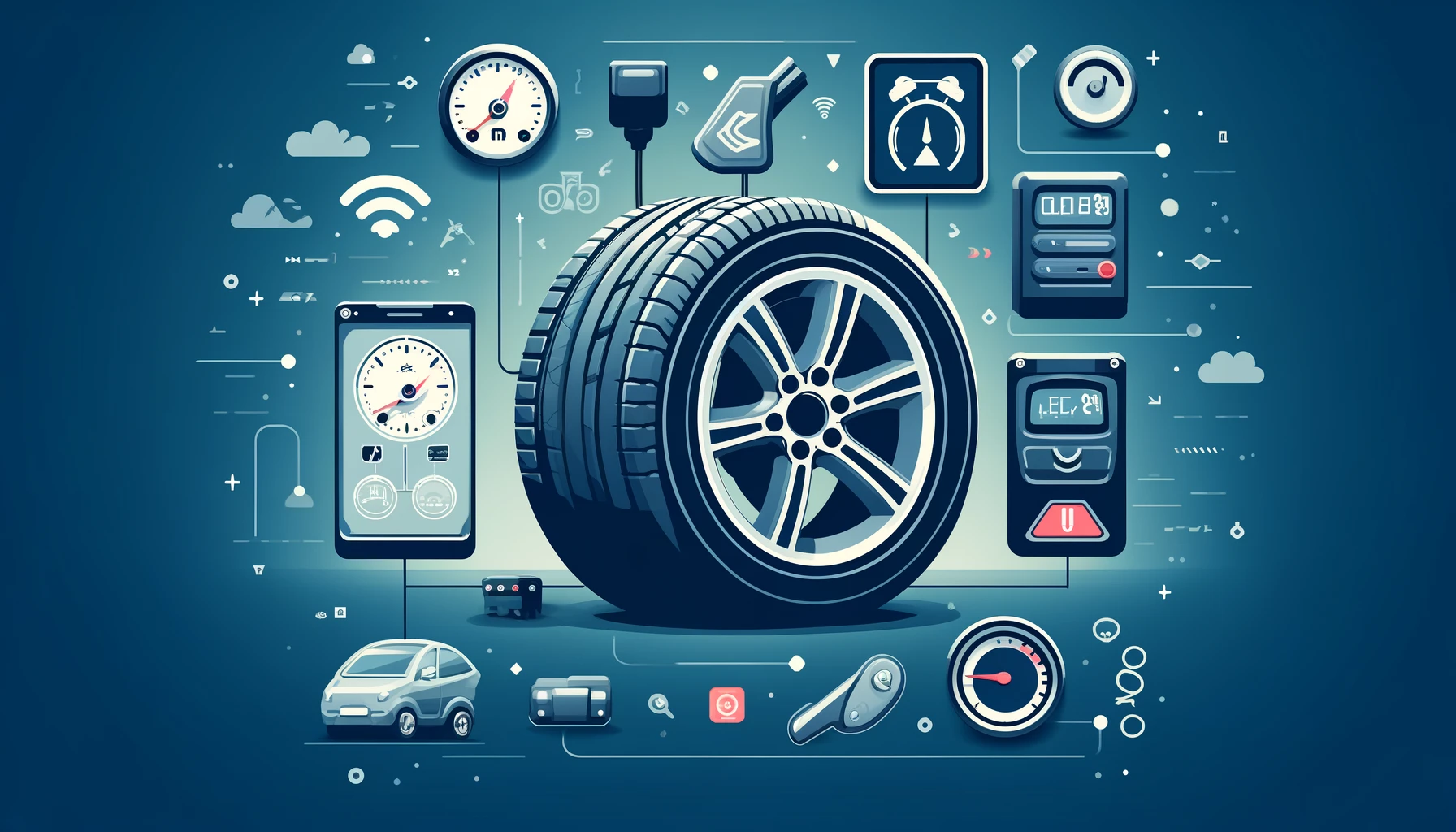Welcome to the fifth article in our series, “Driving Safely: Understanding Your Vehicle’s Safety Features.” If you missed our previous articles, be sure to check out The Basics of Vehicle Safety: Essential Features Every Car Should Have, Advanced Driver-Assistance Systems (ADAS): Enhancing Road Safety, The Role of Telematics in Driving Safety, and Child Safety in Cars: From Car Seats to Child Locks. Today, we will explore the importance of Tire Pressure Monitoring Systems (TPMS) in vehicle safety.
The Impact of Tire Pressure Monitoring Systems (TPMS) on Safety
Maintaining proper tire pressure is critical for vehicle safety, efficiency, and performance. Tire Pressure Monitoring Systems (TPMS) are designed to keep an eye on your tire pressure and alert you when it drops to unsafe levels. Let’s dive into how TPMS works, why it’s essential, and how you can keep your tires in top shape.
What is TPMS and How Does It Work?
TPMS is a system that monitors the air pressure inside pneumatic tires on vehicles. It uses sensors to collect data on tire pressure and transmits this information to the driver through a dashboard display. There are two types of TPMS:
- Direct TPMS: Uses pressure sensors inside each tire to directly measure the pressure. This data is transmitted wirelessly to the vehicle’s computer system, which displays the information on the dashboard.
- Indirect TPMS: Uses the vehicle’s ABS wheel speed sensors to detect when a tire is under-inflated. When a tire’s diameter decreases due to low pressure, it rotates faster than the properly inflated tires, triggering the TPMS warning.
Importance of Maintaining Proper Tire Pressure
Proper tire pressure is essential for several reasons:
- Safety: Under-inflated tires can lead to tire blowouts, especially at high speeds, which can cause accidents. Over-inflated tires can also be hazardous as they reduce the tire’s contact with the road, affecting handling and braking.
- Fuel Efficiency: Properly inflated tires reduce rolling resistance, which helps improve fuel efficiency. Under-inflated tires can increase fuel consumption due to higher resistance.
- Tire Longevity: Maintaining the correct tire pressure helps extend the life of your tires. Under-inflated or over-inflated tires wear out more quickly and unevenly, leading to frequent replacements.
Steps to Check and Manage Tire Pressure
While TPMS helps alert you to pressure issues, regular manual checks are still necessary. Here’s how to ensure your tires are always in good shape:
- Regular Checks: Check your tire pressure at least once a month and before long trips. Use a reliable tire pressure gauge to measure the pressure.
- For Older Vehicles Without TPMS: If your vehicle doesn’t have a built-in TPMS, consider purchasing an aftermarket TPMS system or a high-quality tire pressure gauge. Regular manual checks become even more critical to ensure your tires are properly inflated.
- Follow Manufacturer’s Recommendations: Refer to your vehicle’s owner’s manual or the sticker inside the driver’s side door for the recommended tire pressure levels.
- Adjust Pressure as Needed: If the pressure is too low, add air until you reach the recommended level. If it’s too high, release some air. Most gas stations have air pumps with built-in gauges for this purpose.
- Inspect for Damage: While checking pressure, also inspect your tires for signs of damage, such as cuts, punctures, or uneven wear, and address any issues promptly.
Conclusion
Tire Pressure Monitoring Systems play a crucial role in maintaining vehicle safety, improving fuel efficiency, and extending tire life. By keeping a close watch on your tire pressure and following proper maintenance practices, you can enjoy a safer, more efficient driving experience.
Stay tuned for the next article in our series, where we will discuss the importance of Electronic Stability Control (ESC) and how it can help prevent accidents. Drive safely and keep your tires properly inflated for optimal performance.
If you or someone you know has been involved in an accident, Stillman & Friedland Attorneys are here to help. Our experienced team can guide you through the legal process, ensuring you understand your rights and options. Call our Nashville team at 615-244-2111 for a free, confidential consultation. You can also reach out via our live chat or online contact form.
Stay safe out there, Nashville.
Because we care…
Stillman and Friedland







